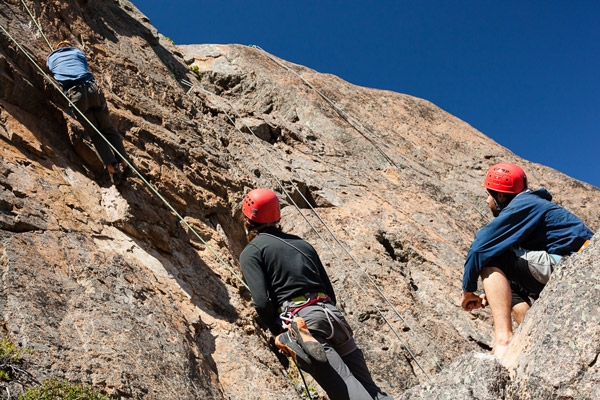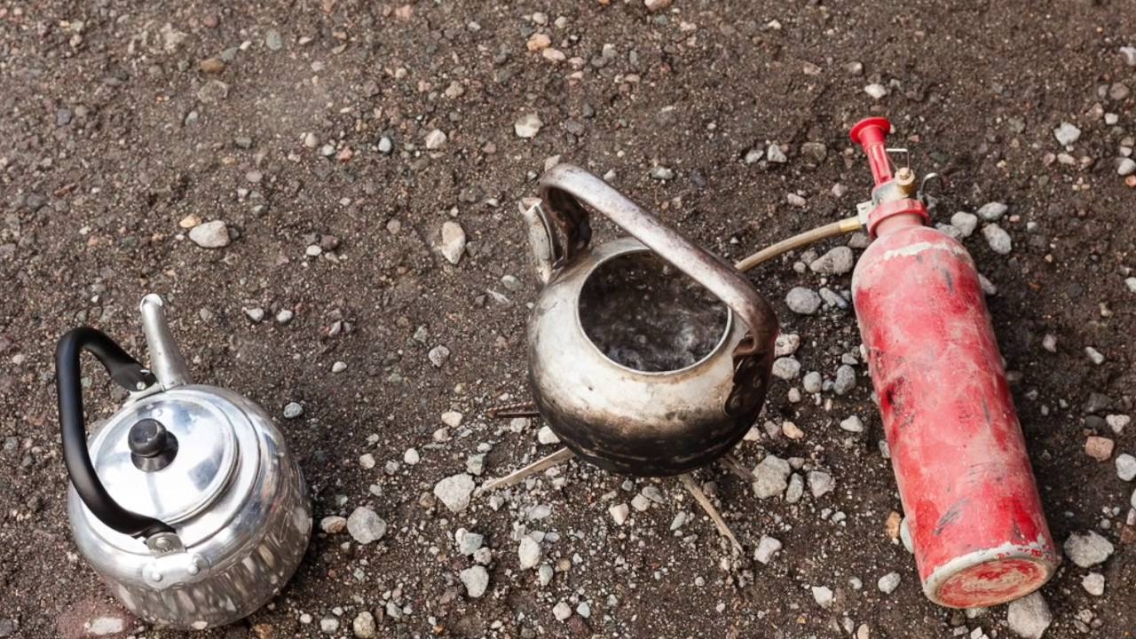Lessons from Patagonia’s Culture of Sharing

When it comes to bridging cultures, little things can make a big difference. For Middlebury Institute student Tom Stagg MPA ’16, one small aspect of living and working in Patagonia in southern Chile ultimately loomed large in his impressions of the experience: sharing a warm cup of yerba mate with his colleagues.
Stagg traveled to Patagonia this spring on his International Professional Service Semester (IPSS) assignment to work with the U.S.-based National Outdoor Leadership School (NOLS) in Coyhaique, Patagonia. The NOLS team asked Stagg to help them answer a mission-critical question: “How can NOLS Patagonia influence its issues of concern, such as conservation, land management and access, and sustainable and Leave No Trace practices, in its region?”

Settling into the community in Coyhaique, Stagg soon observed that mate, a caffeinated traditional drink that is popular throughout South America, is shared among community members in a specific, almost ritualistic way. The mate is warmed and prepared in a single cup (also called the “mate”), and a straw (the “bombilla”) is placed in it before it is passed around among the gathered group. Each person present sips in turn from the same cup, an act of communal sharing that is a microcosm of Patagonian culture, where everyone in a community is expected to share resources with one another.
“My first personal experience with mate was with NOLS Patagonia,” says Stagg. “However, drinking it wasn’t a big deal to me and I don’t actually remember the first time it was served to me. What interested me was how the mate custom represented all the other welcoming and sharing gestures I experienced in Patagonia: shaking hands and kissing cheeks for greetings, ride offers being so common that I could hitchhike to town and back (six miles) without having to wait more than 10 minutes for a ride, being asked to sit and eat empanadas in a stranger’s home, and open invitations to asados (barbecues).”
Tom Stagg’s Video “Mate”
During his time in Patagonia, Stagg assembled a video highlighting the importance of mate as a sort of social glue helping to cement the interdependence and connectedness of social groups. “I made the video in order to reflect back to NOLS Patagonia staff members that I thought that their high level of sharing and their communal culture was an important part of what they offer to students and to each other. When I screened the video for NOLS staff, they mentioned that they had gotten away from teaching new instructors those details of social interactions in Patagonia, which used to be part of orientation for newcomers, so I think it was helpful for them to see that those things are appreciated.”
On his return, Stagg developed a project website detailing his experiences and conclusions. “In my project, I try to make the connection that the sharing culture I observed in Patagonia is a model for how NOLS should participate in the community to be an effective leader in outdoor education and wilderness management.”
Students who enroll in the IPSS program—which was profiled more broadly earlier this week—serve as junior professional staff members in an international organization while producing specific deliverables for academic credit. These sorts of experiences provide an opportunity for students to apply the skills—professional and intercultural—they have been taught in the classroom in real-world situations, while working to solve real problems.
Asked how his experience in Patagonia changed him, Stagg says that, “My time at NOLS Patagonia gave me confidence about the skills I’ve built at MIIS. In terms of how I interact, in the two months since I left Patagonia I haven’t lost that openness for warm personal interactions, even with people I meet in passing, although I feel this is also an effect of increased confidence and comfort.”
For More Information
Jason Warburg
jwarburg@middlebury.edu
831.647.3156
Eva Gudbergsdottir
eva@middlebury.edu
831.647.6606

